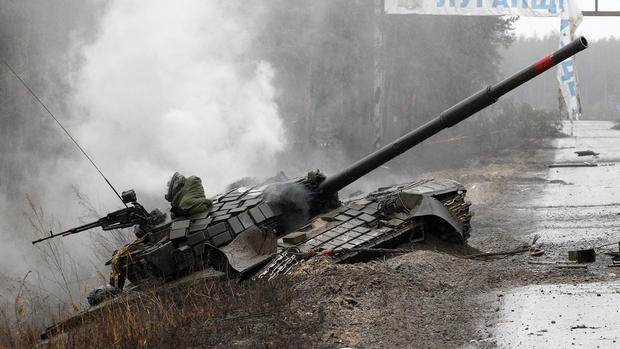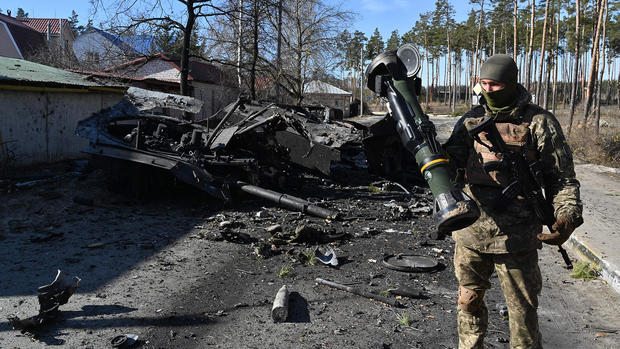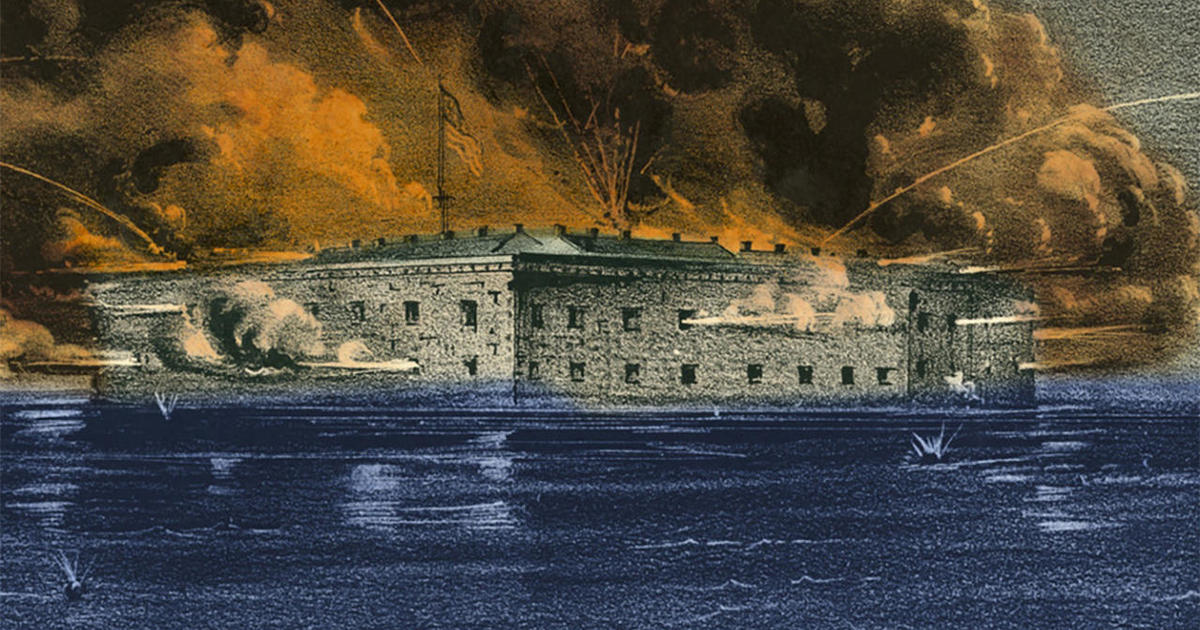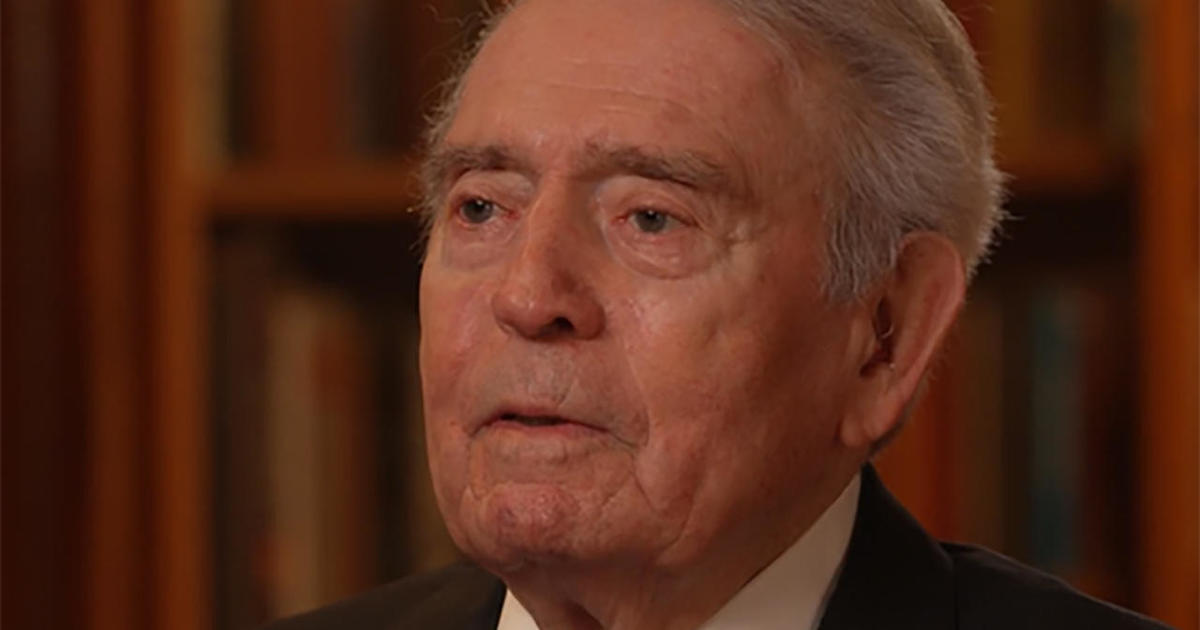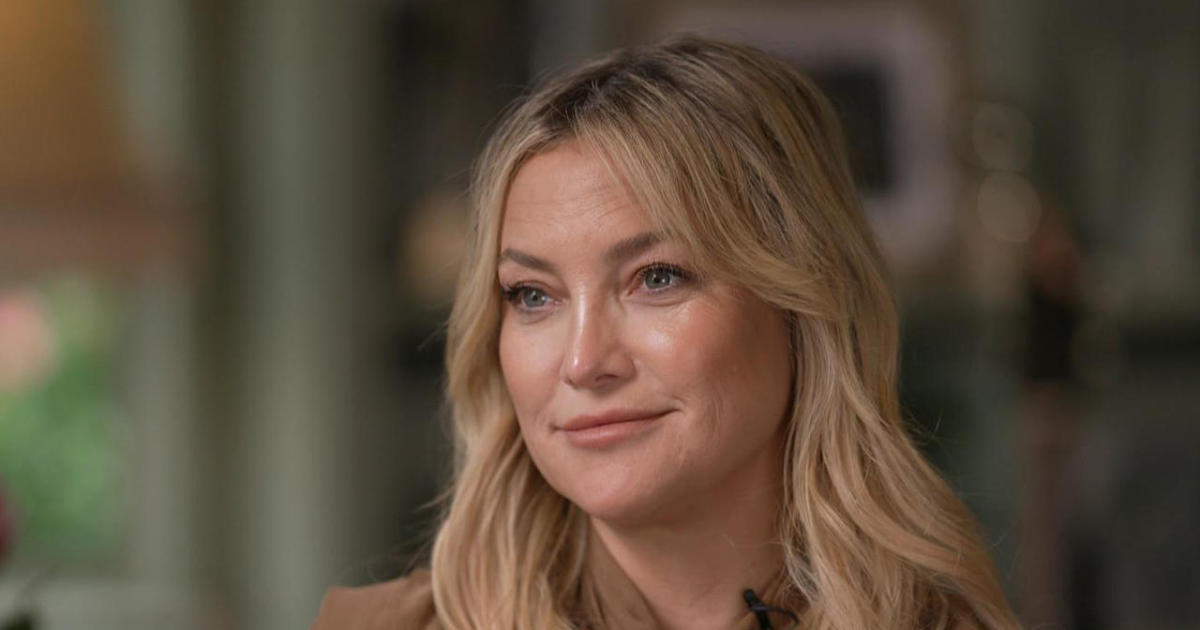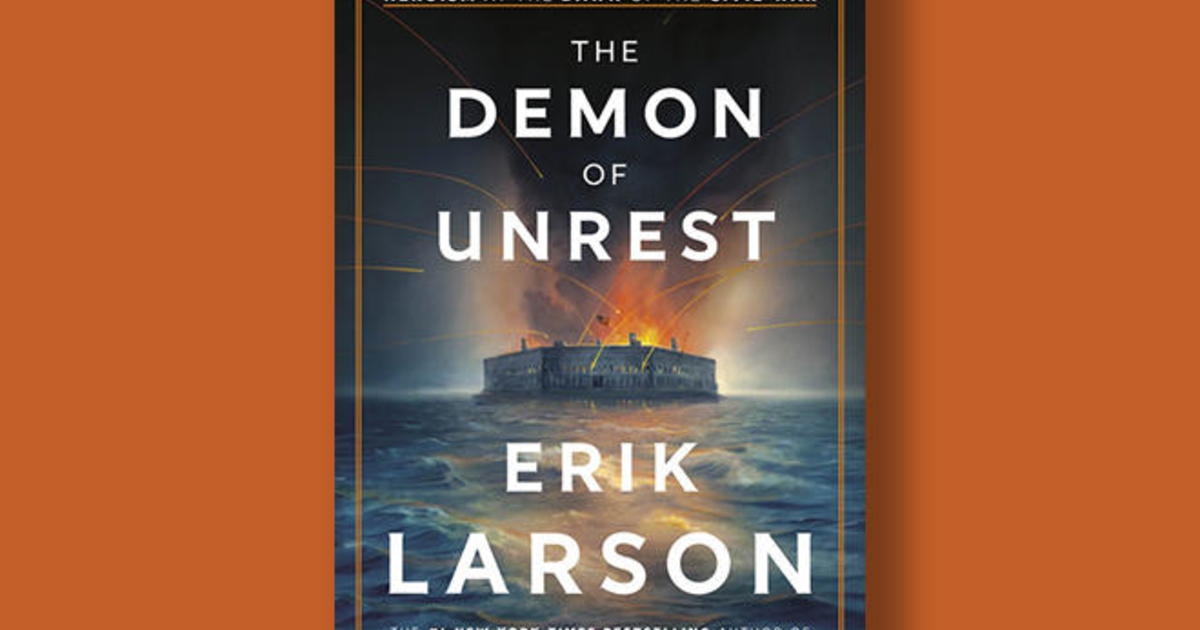Why Russia's tank war stalled in Ukraine
The stalled and sputtering spectacle the Russian military is making of itself in Ukraine came as a revelation to General Frank McKenzie – and almost certainly to Vladimir Putin as well. "I am surprised at the problems they were having," McKenzie said. "It should be very concerning to Russian leadership."
As commander of U.S. forces in the Middle East, McKenzie has spent the last three years operating in close proximity to the Russians in Syria, and knows their history as one of the world's great tank armies – all of which has been belied by the first three weeks of war.
"They haven't been able to maneuver their armor effectively," McKenzie told CBS News national security correspondent David Martin. "There's a tremendous history of that, actually, in the Russian military, being able to do deep-armored operations. At the end of the Second World War, they were as good at that as anybody else. But these guys don't seem to have remembered that."
"Should heads roll?" Martin asked.
"I would not be happy if that's the way U.S. forces were performing," McKenzie replied. "We have non-commissioned officers that are the backbone of the joint force. They're the people that actually make sure things are done, that continuing actions are taken, that you dig in, that your tanks don't run out of fuel."
McKenzie, himself a tank commander as a young officer, watched in disbelief as an entire armored column advancing on Kyiv literally ran out of gas.
"If you're going to drive and operate a main battle tank as a commander, and I have, then you are thinking all the time about fueling that beast. If you're not thinking about fueling that beast, then you're behind. And they appear to have not taken those basic logistical considerations and trying as they move forward."
Martin asked, "Are you surprised they seem to be sticking to the roads?"
"That's a lack of training," he said. "You've got to get off the roads to maneuver. The roads are death traps, particularly for armored vehicles, particularly when you're fighting people that have good anti-tank systems, and the Ukrainians do have good anti-tank systems."
On Wednesday President Biden promised the U.S. will send 9,000 more anti-tank weapons. "The United States and our allies and partners are fully committed to surging weapons of assistance to the Ukrainians," he said, "and more will be coming."
Including the shoulder-fired Javelin, which dives down on the top of a tank where the armor is thinnest. Using everything from the high-end Javelin to the workaday rocket-propelled grenade launcher, the Ukrainians have destroyed several hundred Russian vehicles.
- Anti-tank missile "Javelin" thwarts Russian attacks in Ukraine
- The weapons the U.S. and allies are providing to Ukraine
Martin asked, "How much of this is due to Russian incompetence as opposed to Ukrainian skill?"
"That's a great question, and I think we're going to have to see how this progresses a little further to be able to finally answer that question. I would say this: the Ukrainians have shown great bravery in defending their country. It's less clear to me how aggressive and motivated Russian forces are down at the individual soldier level, the platoons that are actually driving on the roads, you know, meeting the enemy."
Ukrainian resistance foiled Russia's plan to take the capital of Kyiv with a lightning strike in the opening days of the war. With their vaunted tank army stalled, the Russians have reverted to siege tactics – pounding cities and their residents with rockets and artillery. But they are expected to regroup and try again.
- Russian onslaught on Ukraine expanding in intensity and reach ("60 Minutes")
- Pentagon says Russia has fired more than 900 missiles since invading Ukraine
- Russia accused of striking maternity hospital in Ukrainian port city
- Russian strikes intensify, hitting Ukraine's western city of Lviv for the first time ("CBS Mornings")
"Is it conceivable to you that Russia could just flat-out fail to take Kyiv?" asked Martin.
"I would be surprised if that outcome happened," McKenzie replied. "Taking Kyiv is very important to them. I predict they'll try very hard to take it, and I think there could be a horrific price, actually, to be paid in the civilian population as they move against the city."
For more info:
- General Kenneth Frank McKenzie, Jr., Commander, U.S. Central Command
- Complete CBS News coverage: Ukraine in turmoil
Story produced by Mary Walsh. Editor: Mike Levine.
